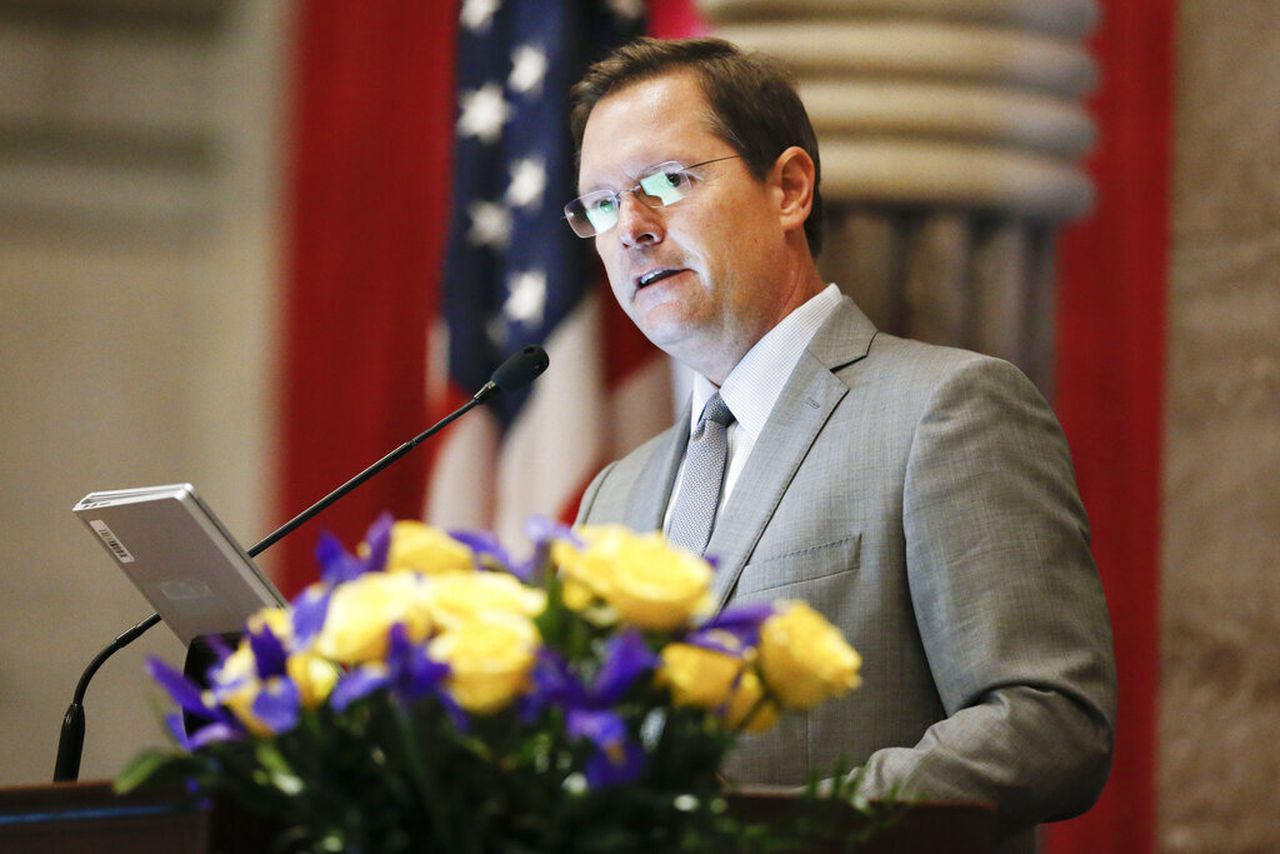Tennessee GOP split over adding exceptions to abortion ban
For months, Tennessee’s Republican leaders have maintained that the state’s abortion ban — known as one of the strictest in the U.S. — allows doctors to perform the procedure, should they need to in order to save the patient’s life, even though the statute doesn’t explicitly say so.
This assertion has been met with skepticism from health care experts, attorneys, Democrats and reproductive rights advocates, who counter that the law has created a dangerous, new legal landscape for those navigating pregnancy and for medical providers.
Since some isolated Republican lawmakers vouched for exceptions, this week a key legislative leader acknowledged that the skeptics had a point — and he thinks the law should be changed.
“You have all kinds of people who say: I don’t see it, can you point to it?” House Speaker Cameron Sexton said, about the statute’s unclear language around exemptions, in an interview with The Associated Press. “If that’s the intent, then let’s clarify it. Let’s have the exemption for the life for the mother.”
Sexton’s comments stand in stark contrast to the stances of Senate Speaker Randy McNally and Gov. Bill Lee, both Republicans. While all three lawmakers largely oppose abortion, Sexton is the lone, top Republican leader to concede that the ban could be clarified and improved.
These divisions have emerged as state lawmakers returned to Tennessee’s capitol city this week to start the 2023 legislative session. They could represent the next front in the legal fight over when and how to make exceptions to abortion bans in states with Republican majorities.
With supermajority control, Tennessee Republicans are expected to advance a wide range of issues — from tax breaks, to harsher penalties for certain crimes, to policies that target treatment for transgender children — without much resistance. They also must grapple with a crisis inside Tennessee’s Department of Children’s Services, which has been flagged as failing to properly protect the state’s most vulnerable children. Meanwhile, Sexton said he’ll introduce legislation that would allow teachers to take up to six weeks of paid maternity and paternity leave.
Yet on abortion, the Republican rift has left little certainty about what, if anything, will pass.
Related: Alabama attorney general walks back statements about abortion pills
Tennessee’s abortion ban is considered one of the nation’s strictest. It makes performing an abortion a Class C felony, punishable by up to 15 years in prison. There are currently no exceptions.
Instead, the law includes an “affirmative defense” for doctors. Rather than make the state prove that the procedure was not medically necessary, the law shifts the burden to the doctor to argue in court that it was.
Tennessee lawmakers passed the law in 2019, when the idea of the U.S. Supreme Court overturning Roe v. Wade was a hope among most Republicans, rather than an impending reality. In the months since Tennessee’s law has been in effect, at least one Republican state lawmaker has admitted that he voted for the trigger law after hardly reading it because he never thought the high court would revoke the constitutional right to abortion.
Still, in an interview with The AP, McNally said he supports the current law and doesn’t think it should be changed, saying “we should see how it works out.”
McNally said he thinks the law provides protection for people who are pregnant, but “it’s not absolute because making a decision about the life of a mother is not absolute.”
He said “it could be something that there’s a small chance that it might harm her, or it could be a critical decision such as an ectopic pregnancy.” He said he generally has faith in prosecutors, since they can decide whether or not to bring charges under the law.
And though he said he would probably vote against a bill that would change the abortion law, McNally said abortion won’t be used as a “litmus test” for GOP senators. He said he wouldn’t actively work to block a bill from coming to the floor for a vote.
“I usually don’t get involved and usually trust the committee system, and certainly would in that issue,” McNally said.
Meanwhile, Lee has downplayed concerns that the abortion ban’s current language about exemptions has sparked confusion and fear in the medical community. As a vocal opponent of abortion rights, Lee has maintained that doctors can use “their best judgment” to save the pregnant person’s life.
Sexton says his support for abortion exceptions aligns with what most Tennesseans want, pointing to various polling that showed support for exemptions.
According to a recent Vanderbilt University poll, most registered voters in Tennessee said they wanted exceptions for rape or incest in the state’s sweeping abortion ban — and many don’t know the specifics of what’s in the law as it stands today.
Fewer than 1 in 5 were able to pick which of the statements Vanderbilt provided that most closely described the current abortion law’s requirements, according to Vanderbilt pollsters.
However, Sexton said he’s unsure if there’s enough House GOP support to add exemptions for rape and incest. Several bills this session will offer tweaks to the ban, he said.
“We need to, especially in our caucus, listen to all the women and let’s see what they say,” Sexton said. “You’re gonna have some who believe in (the) trigger (law), you’re gonna have some believe we need exceptions … but it needs to be a conversation where we listen instead of trying to talk to them about what we think is needed.”
Tennessee’s abortion ban has not faced a legal challenge since it went into effect last August. However, legal challenges are popping up across the country against the strict restrictions that states have implemented since the Supreme Court’s abortion ruling.
Most recently, South Carolina’s Supreme Court struck down a ban on abortion after about six weeks into pregnancy, ruling that the restriction enacted by the Deep South state violates a state constitutional right to privacy.
